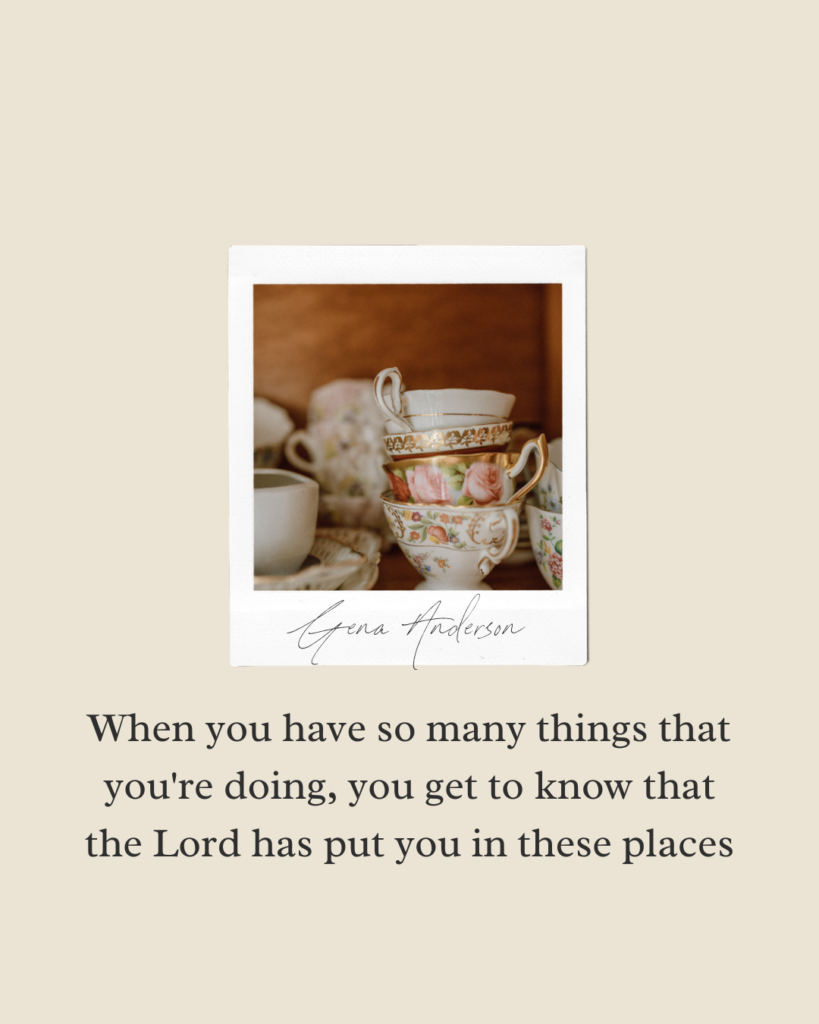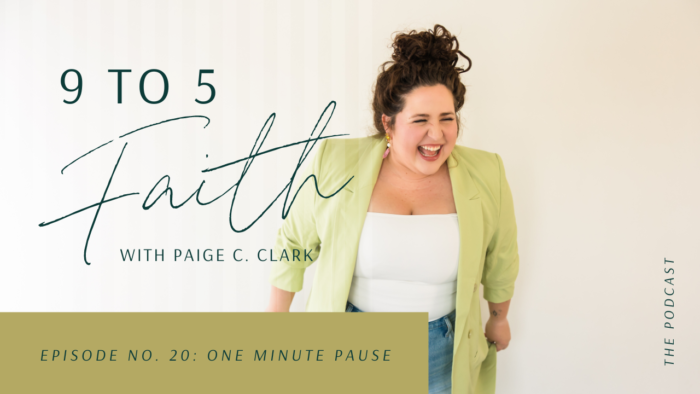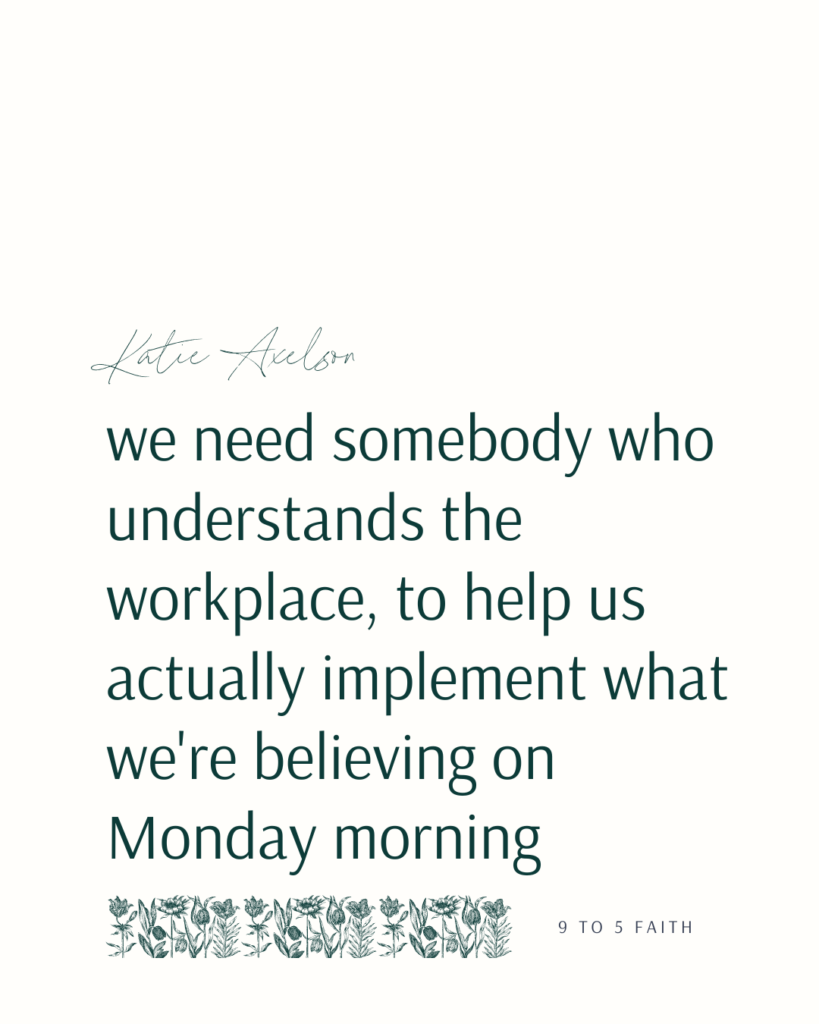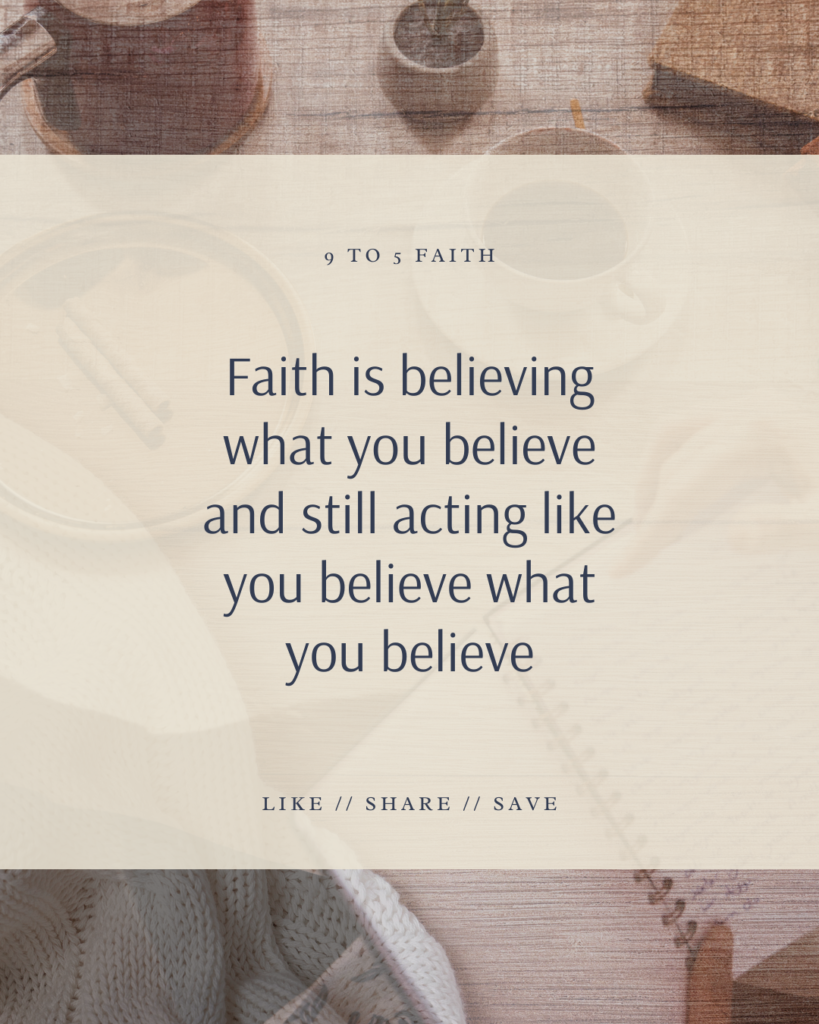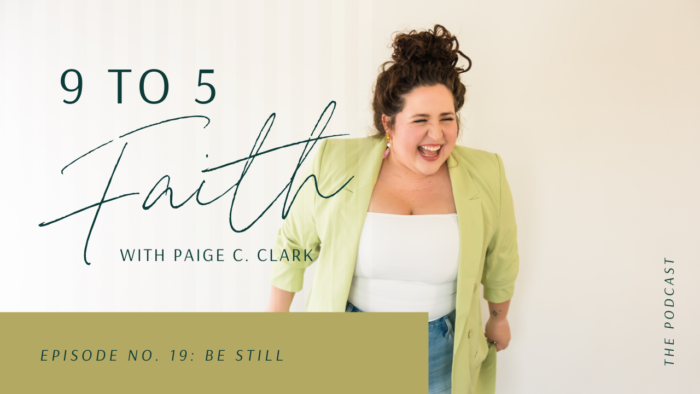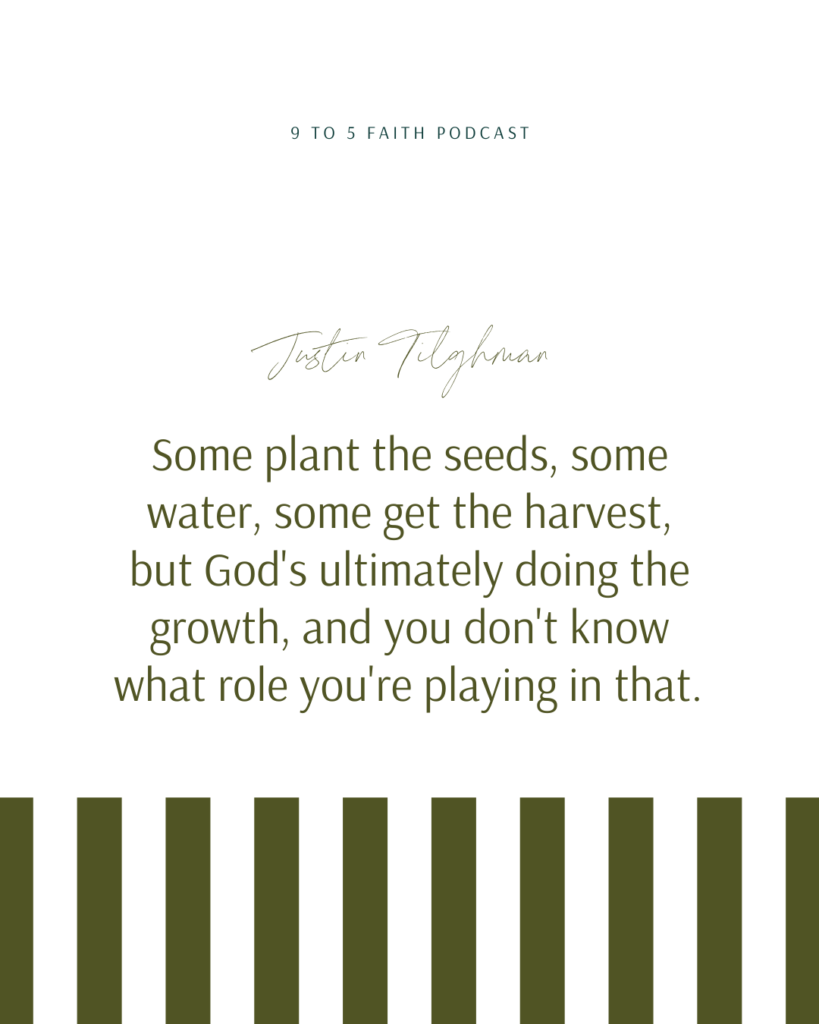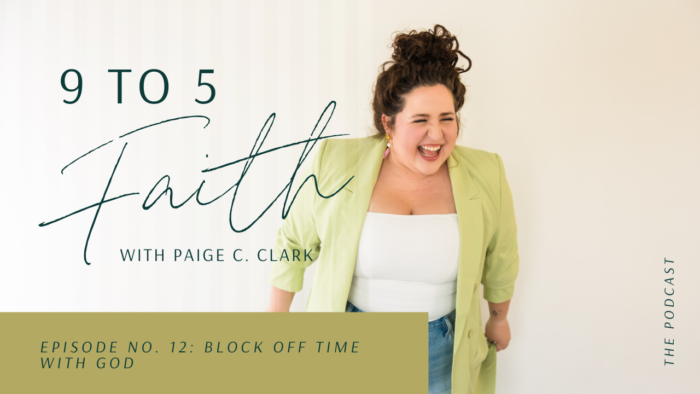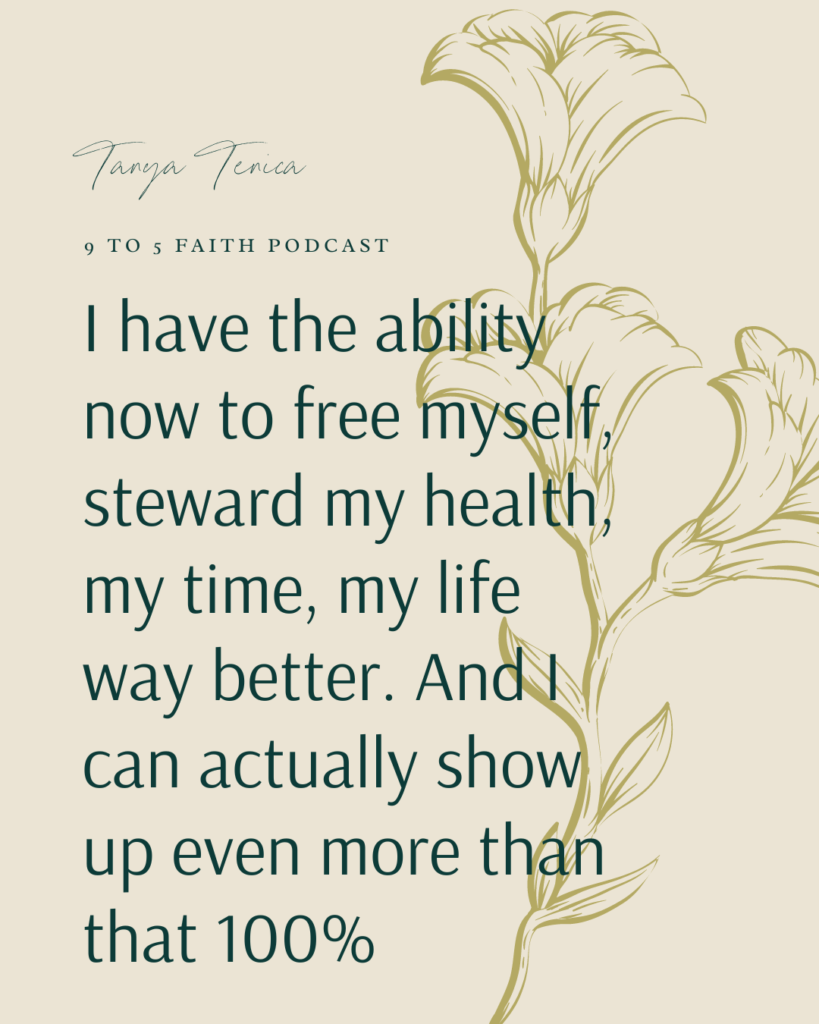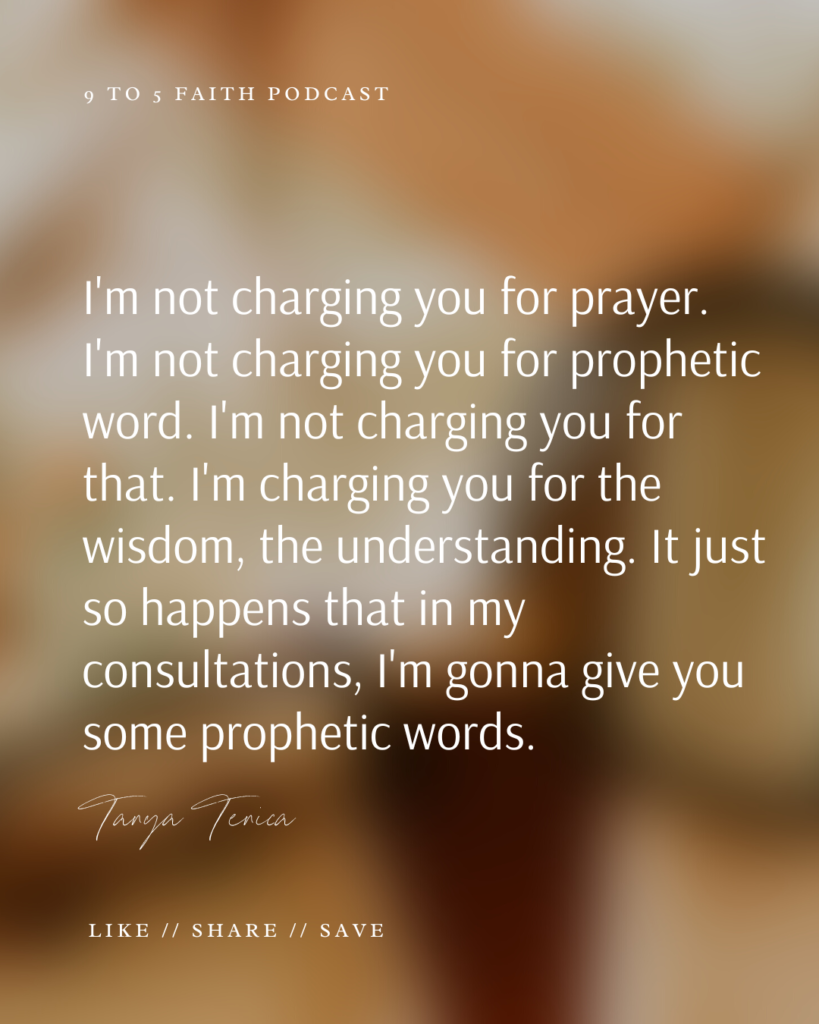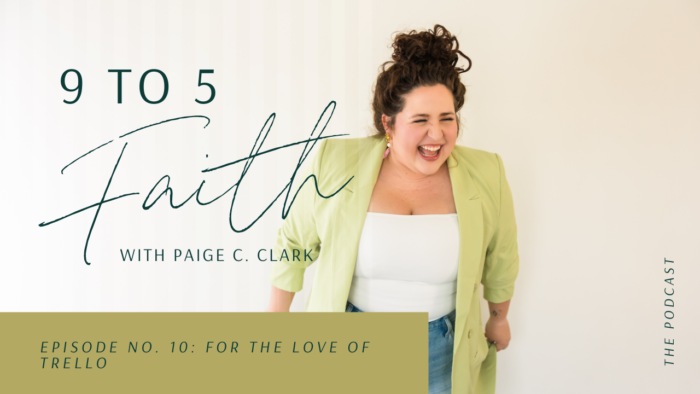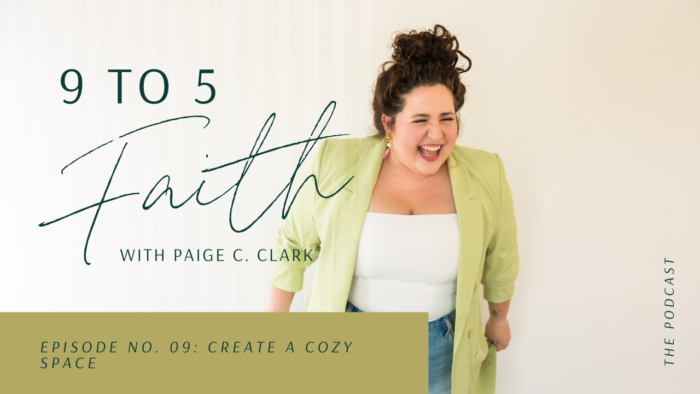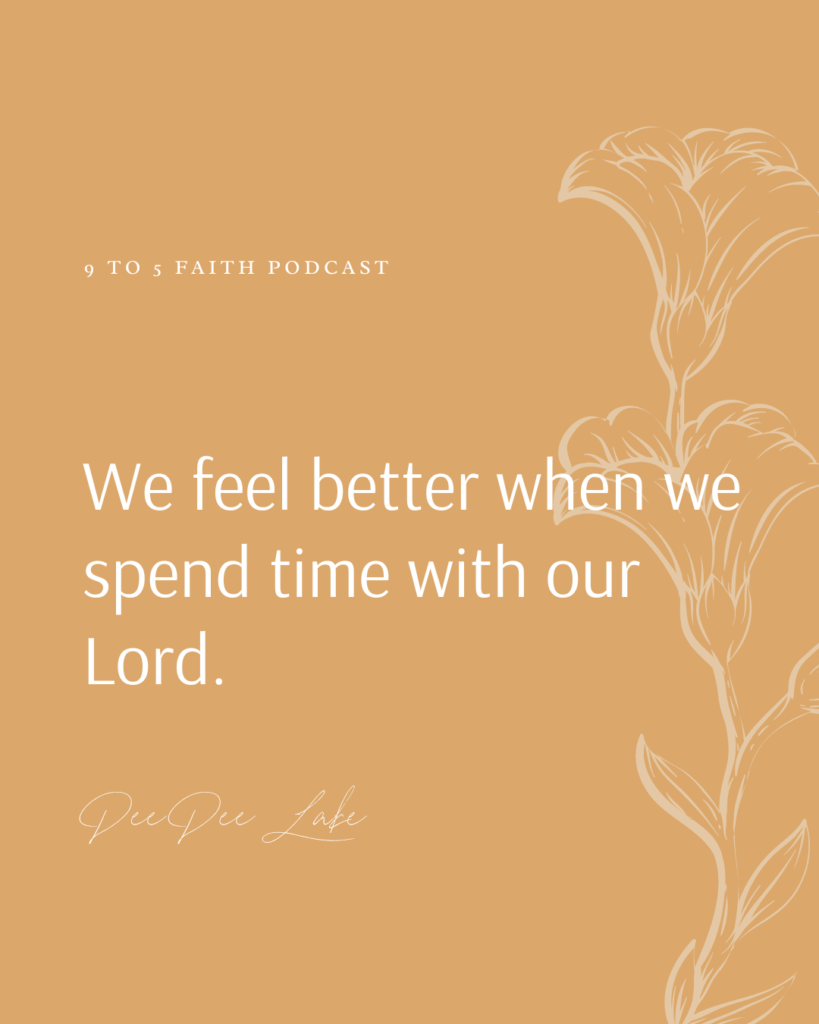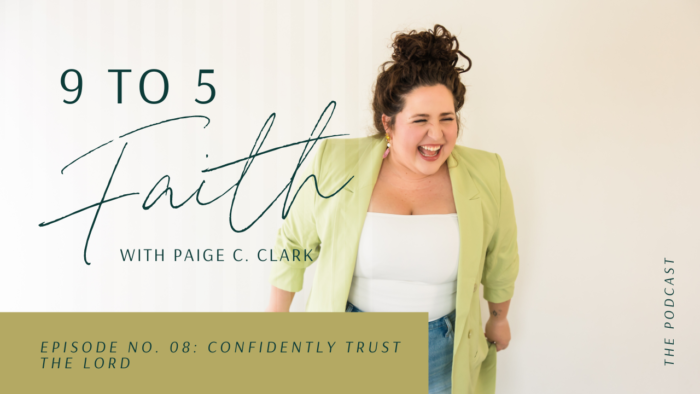This is a transcript from episode 22 of the 9 to 5 Faith Podcast with Paige C. Clark.
Share on Social
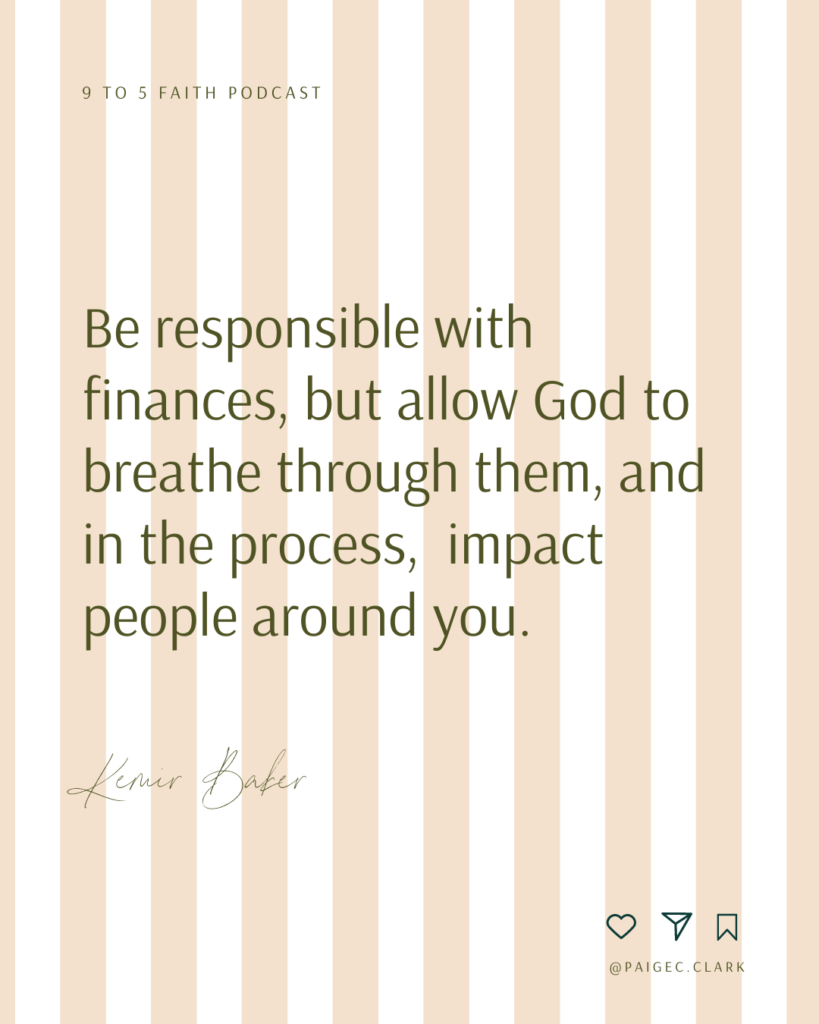
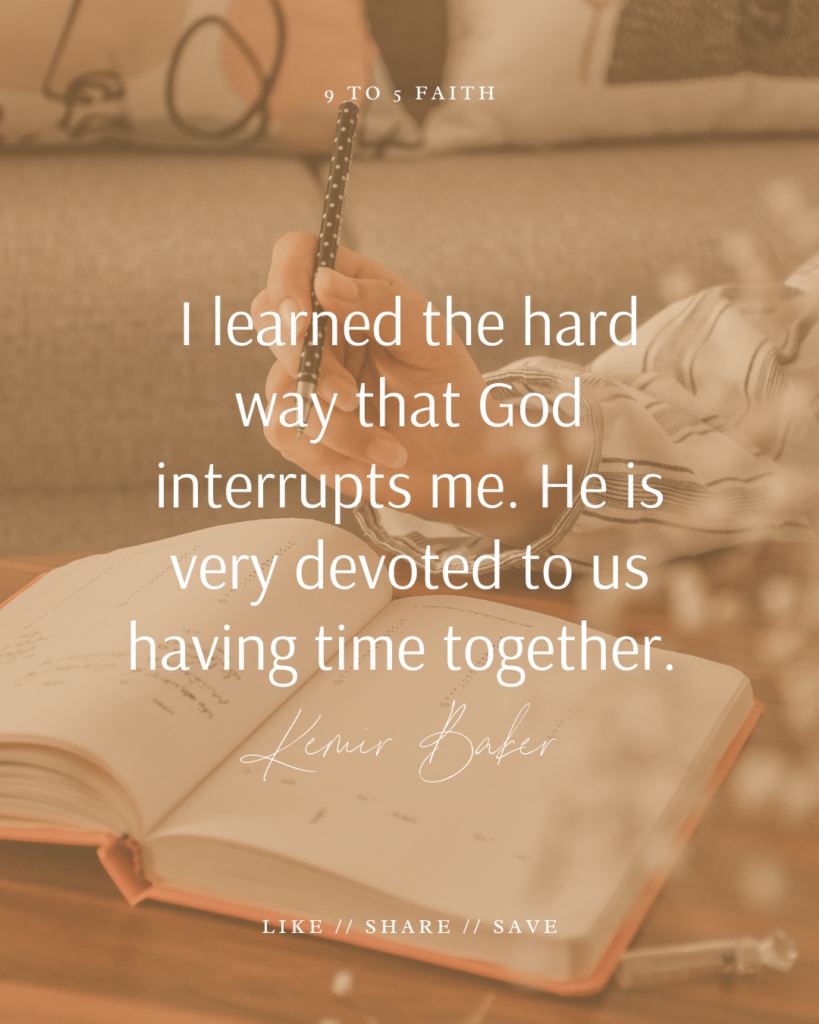


Start of Podcast
Paige C. Clark 00:41
Hello, everyone; welcome to another episode of the nine-to-five faith podcast. I am here with one of my new friends Kemir Baker; how are you doing today?
Kemir Baker 00:53
I’m doing pretty well. I’m excited to be here with you.
Paige C. Clark 00:57
I’m so excited. And this has been like months in the making just because of life and schedules and all that stuff. So I’m so happy that we finally get to sit down. We get to have a good conversation, and we get to talk about all the things faith and work and all that good stuff. Yes. So tell us. Yeah, so tell us a little bit about yourself.
Kemir Baker 01:18
Well, my name, as you already said, is Kemir Baker. And about five years ago, I started a nonprofit called J intelligence networks. And for short, we’re J entails because that is a mouthful. And what we do is we provide educational programs, faith-based educational programs for emotional health, and healing, emotional healing as well. And being the founder and CEO. That’s what brought me here today because I can work a lot. And so I’ve learned some things in my own walk with God in terms of just discipline so that I’m making sure that I’m connecting with him in the midst of all that needs to get done. And I will say, as I made that statement, I was like, Well, tell me your story. It’s not that different. You’re a woman. And as a woman, that’s what we do. We get the job done. Yeah. And sometimes, in that process, we kind of overlook ourselves and overlook, digging deeper into our walk with God because we just don’t have time.
Paige C. Clark 02:17
Yeah. So I have so many questions kind of rolling through my head. So the first one is, when setting up your company, how did you it’s kind of, I guess, a little bit easier because it the product is a faith-based product. But how do you in terms of, like, company culture? As we always said, hire and fire to your values. You know, how do you keep Jesus and your Christian values at the forefront of your mind when you’re running your business?
Kemir Baker 02:56
Well, it actually is kind of interesting because there are certain things you’re not supposed to do by law in terms of how much you communicate God and things of that nature. And so, for myself, I realized that a lot of what we represent, we have to walk it. We can’t just say, Oh, we represent God in a new and fresh light. Like we have to make sure that we’re treating people with love, dignity, and respect. And those attributes when it comes out of how people at times don’t have that experience. They may have experiences where their bosses are over them; they’re being micromanaged. They’re not being built up. And so when we can come and present those practices, they know right away that we’re different, and they feel so like excited until then they just work harder because they feel believed in. Yeah, yeah. And so that’s been exciting to see because I’m reformed, my character was me, St. Jesus, if I didn’t put them in a saint, I do not believe the day to make that adjustment, and because not everyone can receive Christ in that way where it’s just in their face. And so, I had to learn how to adjust my presentation of him. So that he is not only still being seen but approachable.
Paige C. Clark 04:21
Seen but approachable. I am actually working on some writing right now. And I have, like, normal but sacred. And I feel like what you just said like seems but approachable is like the same exact like kind of falls into the same dichotomy of the two because yeah, like I think, I think that there’s this holiness, right, the reverence that we should have for God, but also like, Jesus for everyone who accepts Him.
Kemir Baker 04:51
Yeah. Yeah. So yeah. We know in our journey, there were times when we weren’t ready to Hear him and wanted to draw closer to Him. And so then it becomes who are we to be the complete opposite when he met us where we were at, and was able to have that conversation with us and slowly bring us to that place where we’re like, Ditka left?
Paige C. Clark 05:19
Yeah, yeah, absolutely, I think to like that. Not only not that it waters down the gospel, but it helps people understand, like, kind of the context of Jesus and like how he works. I know it sounds really vague, but I’m thinking of, like, the chosen series, right? Like, I know, there’s like a lot of, like, the internal controversy of, like, the legitimacy of it. And I think like, you know, you can argue, you know, theology every day with it, that’s fine. You know, that’s not what I do. More power to those people who do. But I think that what it has done in a really great way is it has shown both the humanity and holiness of Jesus, which is a really beautiful thing to see.
Kemir Baker 06:18
Yeah, for sure. Yeah. And when I watched the chosen, I saw a couple of episodes. Because what they do is fill in the gaps of the possibility of what that culture was like. What could have been? And when I watched it, I was like, I never thought about it that way. I never thought about Matthew doing X, Y, and Z and someone being exiled from their family. I was like, I, I never promised that because when you read it, you read it so quickly, sometimes, right? They’ll slow down and say, Well, wait a minute, how did that decision impact other people around them? I feel like the chosen does a good job of showing what that impact looks like.
Paige C. Clark 06:58
Yeah, there’s a book that I like to read. It’s called What if it’s true? And have you read it?
Kemir Baker 07:04
I haven’t, but it sounds enticing. Oh,
Paige C. Clark 07:06
it’s so good. But it’s this guy who usually writes fiction. And it’s all it’s half memoir, half, half, like, historical nonfiction, but, but it’s like, what he does is he applies his skills as a fiction writer on top of the Bible, and like the stories of Jesus. And so he does it in book form. The same thing that I see done in the chosen is like adding a lot of context to two different stories like, you know, the birth of Jesus while like, we just know, like, hey, Mary didn’t have room at the end. So she gave birth in a staple. Well, he adds context around him, like, it’s freezing cold. Mary is in pain like there are animals pooping right next to her, like, in a barn. Yes. So he just adds, like, a different context to it. So yeah, those things like that. I always recommend those to people because as a good starting point, especially when they’re getting to know the Bible.
Kemir Baker 08:19
Yeah, that totally makes sense because it hits your heart in a different way.
Paige C. Clark 08:22
Mm-hmm. I think we’re able to see it. Mm-hmm. We’re just able to see it in a way that makes more sense if there’s a little tidbit about reading the Bible. So in what ways have you used your faith to kind of develop the policies around your work? So like, whether it is, you know, respecting the Sabbath? Or, you know, how you even pay your employees or dig into that for me?
Kemir Baker 09:05
Yeah, I think for me, our philosophy is integrity. That’s one of our pillars is integrity and showing God in a fresh light. And so, there have been many times we’re, you know, the flesh will come in, and you want to cut corners, and you want to not pay someone as much because you don’t have very much money. But after a while, you’re like, Okay, you know, that makes no sense. This person has worked really hard. They’ve demonstrated their value to us. Why do I want to cut something that they need? And so, those things are, I think, bring me back from the flesh like okay, well, God meets our needs if we give abundantly, and I will say that he does. And so that was something that I continue to learn, especially in the first couple years when we’re starting, just in terms of not being so tight-fisted with finances, being responsible, but allowing God to breathe through them and in the process impact people around. And again, as I said before, we really do work on us being a light. And you know, when they come in, they read our mission; they know what we’re about. And so that does add another layer of, okay, well, how are you going to engage with me if I know?
Paige C. Clark 10:34
this is represented? Right?
Kemir Baker 10:37
Yeah. And we know sometimes Christians get it bad. Because if you make one mistake, all Christians are terrible. Yeah. And so it does put us at a higher standard than most individuals, most companies because of that,
Paige C. Clark 10:51
yeah, I have been able to work for some Christian companies. And they, they like to say, you know, Christian companies should be the best-run businesses because they have that integrity level. But also, I think, in the way that I mean, business ethics even right, like you can go into down that rabbit hole if you want to have like, how you run your business is in an ethical way. And also, when it comes to things like, you know, acting against your mission or against your values, you know, we’re all human, that’s going to happen, but I think the response is so significantly different. And that’s what sets Christians apart from, you know, other people.
Kemir Baker 11:43
Yeah. Because I’ve learned generally, let me learn my lesson. So I don’t have to keep learning the same lesson. Yeah. And the guy will place you back in a circumstance to continue to purify. Yeah, I’m like, Well, let me get that the first time. My life a little bit easier, Hank, the pain away. In and then, after you’re done with the frustration, and you really ponder over, you’re like, wait a minute, this was self-induced because I knew better. But this was the route that I took. So I can’t get mad at God. I need to take responsibility for my actions.
Paige C. Clark 12:21
And then, one thing God has been teaching me, I’ve just started, like my own garden, in my backyard. And one thing that he really has been teaching me is what you were saying earlier about him providing. And one thing that I’m learning is, He will give you just enough. I feel like you have a story about that. And I want to hear it.
Kemir Baker 12:49
Yeah. I mean, you want abundance? Yeah. Yeah. Because I think that we were because nonprofits, of course, apply for grants. And, there was one grant that I applied for, and I was like, I put in for the max. I can’t wait because these are all the things that we need to get through. And I think that what we were awarded was a fraction. I think it was 1% of the request. And, I was like, okay, but on the flip side, that organization receives so many requests. Because there are not a lot of loopholes that you have to go through. And so then once you start thinking, I was like, wait a minute, we actually did really well to get a response. Yeah, we did well to get a response that quickly. And even though it was 1%, it could have been nothing. Right? And we used it, of course, but what a great they have gotten the abundance. Right. And so it is all God’s telling.
Paige C. Clark 14:01
me. Yeah. And I think just his provision, you know, I just think about one. I mean, it’s one of my favorite stories because, I mean, all the Bible stories where I’m like, I wouldn’t do that. And I’m like, Yeah, you would like that would definitely be you. But you know, when when the Israelites are in the desert, and God provides them with manna, and he says, don’t keep it like you have to trust me that we’re going to still provide and, you know, those who kept it, it went rotten and spoiled within you know, within a day, and it didn’t last and so just that that absolution of like God giving us just what we need when we need it. Yeah, when we ask.
Kemir Baker 14:51
Yes. And he’s right on time. God. Yeah, he’s not up before. No, you know, I’ll be less anxious if you want to do it before.
Paige C. Clark 15:06
Yes, that too. And also do not worry. There’s also that element, and that’s, that’s been I liked. This takes me all the way back to like my childhood when we would like to sing the verse thy lamp is a guide to my feet and a light into my path, or I’m butchering right now, but I heard a sermon one time, and it was like, it’s a lamp. It’s not a floodlight. It’s not the sunshine; it is a lamp. How far ahead can you see with a lamp? Not very far. Right? God gives you a lamp for it. He shows you what is right in front of you, not down the line. Right. I always like that, because I’m gonna has to like it as much as we hate it. But I mean, the ability that we have to surrender that to God, it’s, you know, our wanting to cling to it is just our attempt at control.
Kemir Baker 16:13
Yeah, it’s our version of security.
Paige C. Clark 16:16
Yeah. Really, our security should just be in Jesus.
Kemir Baker 16:19
Yeah. And that’s what he says. And that’s why there’s a castle wrestle. Yeah, yeah, that tension there.
Paige C. Clark 16:26
So tell me a little bit about you’re developing faith-based products. Obviously, you know, you are living out those principles in your work. But what I hear from a lot of my friends who have worked in ministry is that it can become a little bit, I guess, numbing, huh, in essence, so like, for example, so I don’t correct me if this is a poor example. But like you’re writing a curriculum, and you’re spending time in the Word writing this curriculum based on what you said, you just count that as your time spent with Jesus.
Kemir Baker 17:12
Oh, yeah, that doesn’t work for me.
Paige C. Clark 17:15
I don’t think it works for anyone.
Kemir Baker 17:18
Yeah, I learned the hard way; like God, he interrupts me like he is very devoted to us having time together. And so if I’m not putting my time in with him, I start going crazy. I’m just like, emotionally, I’m all over the place. My faith is all over the place. And even when I’m home with my family, because there are so many different levels of responsibility when you’re in your family, and you’d have less time because there are so many needs, that, you know, that’s the temptation to Okay, I’m gonna meet those needs. And then I’ll do God later, and then later becomes, you know, the next day, and then the very next day, and then it keeps going. And, but when I’m in that phase, that stage, I’m not right. I’m more hostile towards people. I’m short-tempered, I, everything is about me, it’s about me, my needs because I’m not looking through the lens of him. And I’m not being strengthened by him. And so that was something he taught me in the beginning for the nonprofit. And it’s been great because it spared me from more hurt because he is very deliberate in wanting to spend time with me. And now I can take pride in that, in the sense of, wow, you don’t need that much. Do you want this much time? You got all these other things, you’re gonna be no, and you got all these other people who want all this chaos with your debt delivery and wanted time with me. Okay, who am I to turn down the creative world?
Paige C. Clark 18:58
That’s beautiful. I have never considered that before. Hmm. I like he gets to spend time with us. And he chooses to spend time with us.
Kemir Baker 19:10
Yeah. And very deliberate with it. And yeah, and so loving and so kind. And for me, he had to transform or change my perspective to be able to see the loving-kindness because of the previous messages that I had ingrained in terms of you got to be xy and z, even to approach your stuff got to be perfect, right? And that’s not his character. That’s not his perspective. And so once I was able to remove that, that faulty lens, that foggy lens, and put that lens of through, you know, he says all time in His Word, and actually start believing that yes, I’m wonderfully formed. Yes, you know, I will do anything. The Impossible, like, are you good? Givengiving me these things in once that start being implanted or implanted in my spirit? Then it became, Oh, wow, why would I want to spend time with you? Yeah.
Paige C. Clark 20:14
One thing that I am learning to I’m going through this book on prayer, and it was, it was like, do you go to God about everything in prayer? Yeah, everything like, and that asked me a really hard question of like, am I even diluting my prayers, like you were saying earlier of like, Oh, you have to have everything all perfect, in order to approach God. And it’s like, no, am I going to Him about everything? Because he already knows, like, who am I kidding? Like, he already knows my thoughts. And, like, Why do I think he’s so far removed from me that I don’t need to be going to him about this stuff?
Kemir Baker 20:59
Yeah. And God just challenged me recently in that I was praying, crying, and praying as I do at times. Because of my own stuff. What happened? But when I was praying, it was so clear that gentle whisper was, you’re not asking. Am I? Oh, can’t you? You already know, like, Are you kidding? Me? No, my tires. He is insulted to hear that boys have, even though he knows he still wants us to ask. Yeah. And it’s so hard to get in that mindset sometimes because we could go on autopilot. But yeah, I got this to-do list. Today, I got ten items; I’m just gonna rush through it. And then, for me, sometimes doing that without putting him first, I still feel so unfulfilled. And or I feel more anxious. I’m so anxious because there’s so much that needs to get done. And then it’s like, but what would it be like if I went to him in the morning and said, God got my day? What would that ten list look like? I’m pretty sure it will change. And so recently, I started to say, Okay, God helped me to guide my day and give me the things that are going to be the most impactful for that. Yeah, because there’s so much to get done. Yeah.
Paige C. Clark 22:29
They’re all buzzes. Yeah.
Kemir Baker 22:31
And I was telling my mom the other day; I was like, I feel like a little hamster on the wheel just going and going and going. But I don’t have anything to show for it. In my mindset, right, right.
Paige C. Clark 22:42
I was telling my husband the other day I, like, was on a rollout, like with my personal work. And I was working, and I was working. And I walked it out into the kitchen, and the sweet thing made dinner for me and all that stuff. And I walked out, I’m like, Okay, I’m finally finished with work. I’m like; I’m at a stopping point where I’m not finished with it by any means. But I’m at a place where I can stop for the day. So you know, yes, there’s always something to do. So how do you check yourself? When it comes to, like, especially running your own business? Like, doing just like a self-inventory of, like, one, you’re the person in charge. So like, the line stops with you? Also, like, there’s always going to be something to do. Exactly.
Kemir Baker 23:35
And I will say that has been my journey for years, learning to rest in Him. And so we’re always having that conversation. Here we go, sit down. Let me get things done. Yeah. And in April, I ended up getting sick. And I thought that I had COVID. And I thought I had pneumonia. We have some respiratory bugs, and they just took me out. And for two weeks, as I was sick, there were things I just couldn’t do because I wasn’t feeling well. But that’s when I saw God doing things with the nonprofit like doors just start opening up. And I was like, oh, so basically you tell me I mean your way. So you had to set me back. So you can start opening up the doors because my innate nature is to work. He tells me all the time you can’t work your miracle. And so so, how do I check myself? I got sick. I try not to get to the next stream. But sometimes, because I get so fixated, you know God will provide interruptions to kind of get me back on track. Yeah, sometimes I’m in tune enough that I can stop myself. But it depends on what my priorities are at that time. So yeah,
Paige C. Clark 24:57
I can definitely understand that because I am surrounded by people who do not call you stubborn but might be a little bit stubborn about God’s lessons. And like, you have to, like, be bed down for two weeks in order for you to, like, completely understand it. And just like watching God move. Yeah. Me and my husband just went through something similar where I’m like, oh my god, I just wanted to tell you, like you learn lessons the hard way, like, learn lessons. So this is where we’re at. Like,
Kemir Baker 25:33
yeah, yeah. Because even while I was sick initially, I thought I just had a cold. So I prepared to be out for five days, but it just kept going. And so it’s like, are you listening in? Let me know.
Paige C. Clark 25:53
Right, right, exactly. And I always think to, like, I’m actually, ironically enough, I’m doing a series about rest right now. And, like, the different types of rest. Yeah, and like, I think I mean, I didn’t realize this up until maybe a few years ago, but like, there are different types of rest, and we need to be providing rest for our whole selves. Yeah. And, you know, we just think rest is like binge-watching Netflix and sleeping until noon, like cool. But really, like, that will only maybe fix, you know, physical and mental rest. But what if your rest needs to be social or emotional, or spiritual? Like, which rest do you need? And, if you’re feeling drained after your rest, you’re probably not getting the right type.
Kemir Baker 26:46
Oh, yeah, for sure. And even for me, where my lesson comes in most is sleep rest. Because of the to-do list, I gotta get this done. And someone reminded me that when you’re not sleeping, you’re not giving your body the opportunity to recover. Yeah. And you don’t make up that time. Like your body never fully recovers what you deprived it of. Yeah. Because you will think, Okay, well, Saturday, I’ll just sleep in. And that submit the like, you still didn’t get what your body needs to fully function. And then another thing that a friend really encouraged me with and wanted me to have the visual is that when you’re sleeping, that is working. So why not take a break? And keep working? Yeah, it’s thinking that it’s all on me. It’s like, Oh,
Paige C. Clark 27:43
yeah. Yeah. And I heard something said about the Sabbath. And the same, in the same regard, is like, do you think you’re so like, as a gut check of like, do you think you’re so important that the world is going to stop if you’re not in it for a day? Like, that’s, like, that’s not the truth, like ego check. Like, you know, the world can exist without you for a day. So take it off because God told us to.
Kemir Baker 28:10
Yeah, for sure. And yet, we’re having this conversation because it’s so challenging to do it.
Paige C. Clark 28:15
Yes. Yes, exactly. It is tough to do it. And then also, I think it’s really fun. I mean, I love when, like, science is like scratching its head at like mysteries that God created. And sleep is one of them. You know, I have done a lot of research into sleep. And there are people who do it professionally. And they’re like, why do we need like this? Like, why are our bodies hardwired for this chunk of time? You know, I think it’s like a third of your life spent asleep. Like why have our bodies evolved to that point? When really I’m like, I think there’s like a divine reason for I don’t have an answer for it. But I think there’s a divine reason that God created us to need sleep. Yeah. And we just like don’t know, or at least science doesn’t know it.
Kemir Baker 29:08
Sure. Yeah. They’ll give you some ideas. Of course.
Paige C. Clark 29:13
Yeah. Yeah. And they’ll tell you what happens if you don’t sleep. Like, there are a lot of things that happen when you don’t sleep, but the stuff, especially around dreams and your brain and like, like why the why we don’t what the why we need sleep is only in the side effects and the symptoms of not sleeping. It’s not in the actual, like, the core of why we actually need sleep as a human right. Yes, that’s mine aside. I’m like looking at my book right now, and I let just video about it. It’s called Why We Sleep. Yeah, I mean, it’s all. It’s all the stuff.
Kemir Baker 30:04
I’m like, one of the things that’s so clear is that you like to learn. Oh, yeah,
Paige C. Clark 30:09
I mean, this bookshelf and then also the other day, I, like, have a mini meltdown. Because we moved in here, like, a year and a half ago, and like, there are still boxes in closets like, that’s real life. And I was looking for a specific book, and I couldn’t find it anywhere. And just like this one book, I haven’t picked up in years. I couldn’t find it anywhere. I’m like, where’s this book running around my house? So yeah, definitely a bookworm or reader learner. Alright, let’s kind of bring it back, bring it around. You’ve kind of hinted at it. But I want you to go a little bit more in-depth about what kind of your day looks like when it comes to rising and being with God. And then, like, family? Do you have kids? I don’t have kids. So I
Kemir Baker 31:05
don’t have children with Okay.
Paige C. Clark 31:06
Okay. Are you? Are you married?
Kemir Baker 31:08
I’m not married. Okay,
Paige C. Clark 31:10
so you are taking care of yourself. And
Kemir Baker 31:13
like, so have the least amount of distractions.
Paige C. Clark 31:17
But also, like, I think it’s a little bit easier to, like, get away with not doing stuff when you’re like, not alone. Correct me if I’m wrong, but
Kemir Baker 31:28
you have, I think, in general, you have to be deliberate. Yeah. And that was one of the things why I like Paul because no matter what, he was very deliberate, and everything that he did. But for me, in terms of my morning routine, which I know those who are married and have children, this is probably not possible for them because of RAM and commitment. But for myself, about two years ago, we were reading a book together as part of our church fellowship. And one of the things they talked about was, as soon as you wake up in the morning, drop to your knees and pray, even before you go to rest. So for the past few years, that’s been my routine, I get up, and I drop into that fray. And it’s just five minutes. It’s not my full prayer because I still do have to go to the restroom.
Paige C. Clark 32:17
Yes, and you need a coffee. If you drink coffee or tea. Yeah, yeah, I
Kemir Baker 32:21
wake up. But that has been really insightful because I’m acknowledging him. And I’m, you know, because you think we might have received text or quotes about having God first thing in the morning? Well, I can, I can say, Yes, I do. Yeah. And then, after that, the restroom break, I have the privilege of being able to sit in and study God’s Word. And so my quiet times are usually about 30 to 45 minutes, and I just dig and allow him to speak into me. But I will say I get in trouble at times because I will break that to do email or internet stuff. So I can post things about the organization. And then, of course, when I do that, I’m so disgusted at myself, like, you know, they’re supposed to yield to him. A guy needs to structure to come in a while going on social media first, right? And so it still is a level of discipline. Yeah. Because if it’s not, in the sense of me making an effort, I will make an effort to do something else. And it happens very quickly and easily. And so, but when I’m at home with my family, I don’t have that luxury; I don’t have the luxury of having this quiet space for 30 to 45 minutes. I don’t have the luxury to get up the big in prayer on my knees first thing in the morning. And so when I’m in that context when things are, you have a family to take care of. I have to make sure that I’m praying throughout the day, I have to make sure that I find, you know, 510 15 minutes where I can read a song and be refreshed in my spirit, where I’m able to just find that that little time, that nugget for me so that God can calm my spirit. And so it took me a moment because I felt guilty. I’m like, oh, normally you’re like at three, five minutes. And now this is like 10. Yeah. And so I had to learn how to be creative and seek him throughout the day, and even repeating scriptures throughout the day, so that I’m still being reminded of his work or even if I’m doing a chore or if I have to drive somewhere where I put something on immediately that’s sharing about him just to reconnect my spirit. Yeah, because living is there, and it’s legit. And it just happens. And, for those mothers who have small kids, it’s like it’s nearly impossible even go to the restroom there to door,
Paige C. Clark 35:16
right? Just go to the bathroom.
Kemir Baker 35:21
Has anybody tried to lie to him? Totally. You’re like, Oh my goodness. And so so you have to be more creative to have that union with Him. Yeah. But I knew that if I was not deliberate in that level of distraction or family environment, then at some point, it would come out. So don’t be like me. Are you being really short to me? Yes, you are. Or, like I said before, just thinking about me, well, you did this wrong and right. And it’s because I haven’t had that time with him. And so when I, when someone checks me from my character, shortness, then I know, girl, you need to go spend your time go outside, walk around the house, even if it’s for five minutes, cry out to do something where you communion with Him?
Paige C. Clark 36:22
Yeah. And I think too, like, you haven’t touched on something that I haven’t considered before of like that guilt of, like, not spending enough time with God. At that, like when you have that guilt, or just, I guess, maybe that conviction, right? It’s making it about you, too. Right. Like, yeah, like, it’s like, I feel bad because I’m, I didn’t do this. But then, like, you know, we’re able to, I think if we reframe that into, like, what you were saying earlier is like, God wants to be spending this time with us.
Kemir Baker 37:03
Yeah. Yeah. And because even if you don’t reframe it, and you stay in that mindset, what happens is you feel so guilty, and it just keeps continuing to the point that you just give up altogether. Yeah. Because now you just feel so poorly about yourself, and then it reflects and other things that you do throughout the day. And so, I definitely go down that path many times, and I had to reevaluate and seek deliverance even if I think about him in a given moment. Oh, that’s actually really good. Because we can go on autopilot and, you know, just do all those things. But even if we allow ourselves to pause in our day and think about him, and even say in that thought, that I just love you. Yeah. Why wouldn’t he want to hear that? Yeah, my mother loves me. Okay. Yeah. Pausing is just telling me that she loves me today.
Paige C. Clark 38:12
Yeah, for sure. When you mentioned it, it was on the bathroom door. It just took me back to this funny video that I wish I could share. But it’s my nephew. And my brother-in-law is in the shower. And my nephew is literally on the floor looking underneath the doorframe. Dad Ha, like he’s like a one-and-a-half Dadda Dadda. You’re talking back and forth. And my sister took a video of it. I was just like, that’s so funny because it is like really true. Like, I don’t have kids either. But yeah, it is true that they are literally in the bathroom.
Kemir Baker 38:54
Looking for you? Yeah,
Paige C. Clark 38:56
I think one thing to have, like, that just sticks out to me is just doing that little bit. I fall into that trap, especially when it comes to like working out the days where I’m like, I got nothing, like I have nothing in the tank. And I just go, okay, just go try to do as much as you can in the gym. And then that’s going to be enough for today. And whatever I ended up doing or when I’m actually working out, if I’m like, I am just, and I can’t continue any longer. I’ll look okay; I got 15 minutes, and 15 minutes is better than nothing.
Kemir Baker 39:35
Yeah, yeah, for sure. For sure. And then, for those who don’t have those distractions and do have the opportunity to invest in that time, I’ve learned from myself that I’m better equipped to meet my challenges. If I spend that time with God in the morning, so that he’s guiding me throughout the day, because there was one period where I was like, I’ll do that. And then what happens at nighttime you are tired? You can’t really grab hold of anything. And you don’t have anything to refer to. Yeah. Because the day is over in terms of pulling you out of circumstances, right? Yeah. And so after Bible time, I go exercise. And then after that, I start working.
Paige C. Clark 40:21
Yeah. And then the grind starts. The other thing, too that that stood out to me is the discipline in, in all of these conversations I’m having, especially on this podcast; I realize that there is, I mean, an intended or unintended kind of stereotype that Christians don’t have to be disciplined in their faith, or like, they don’t have to schedule out their faith. Almost every person I write to, every person I’ve talked to, almost every person I’ve talked to on this podcast, has talked about how they schedule out time and they are disciplined in their time with God. And I think that I don’t want to normalize that and normalize the; it’s okay if it doesn’t feel natural. If it doesn’t naturally come about, it’s okay if it doesn’t because guess what? That’s just the world that you’re living in right now.
Kemir Baker 41:29
Yeah. And then I think a lot of that stems from God being invisible. If he was in a physical representation, and you had access to him physically throughout the day, it wouldn’t be any different than your people relationships, where you have been married, like you want to spend, sometimes you want to spend time because sometimes you need a break from
Paige C. Clark 41:55
you also the time I want to spend time with him, yes. All
Kemir Baker 41:57
right. But you stay together because there are things that you really appreciate about him, and he brings things into your life. And so you have something tangible and physical to draw you back to him. And if he wasn’t physically there, after a while, you would miss him. And you will feel like something is missing in your life. And so because God is invisible, we don’t have that physical connection, that physical reminder that physical, like, I will do anything for you. And so that’s why it comes to okay; it requires discipline because I’m having this relationship with someone that I can’t physically see. Even though, at times, you will basically have his awareness and how he’s orchestrating things in your life. And then you get even more excited because you’re like, hey, is there love, right? Without those little kisses, as I call them? We can be oblivious. Oh, yeah, gosh, I love that. We can be oblivious to him working behind the scenes. Yeah. And I
Paige C. Clark 43:11
think too, oh my god, like, I’m a little choked up because that was so beautiful. Just little gods, little kisses. I think when we look at other religions or ways of thought, what we see is that attempt to grasp the physical. Yeah, you know, you think of like, even like having statues, and even in Christian history, right? Like, there was like this whole, you know, uproar if, like, Jesus should be in a picture or not, right? Like, there was the whole controversy around that. But when you look at a lot of other religions, a lot of them either if there’s like, a city that they’re supposed to go to, because it’s extra sacred, or that’s how they can access God or even like having a statue or some kind of idol or, or what have you even like if I’m gonna make some people mad about this. But, like, with the New Age stuff, you have like crystals, and you have, you know, things like that in the world where people are just like, trying to grasp onto something. And I think that’s like a really good point is like, we’re just, I think a lot of them are trying to make sense of the world that God has given us. Yeah,
Kemir Baker 44:35
yet, because we need something visual to connect with. Yeah, he does answer for that. Because we know that people got in trouble with the idols, and he was like, Hey, that’s not me. And his answer was if you want to remember me, just write my Word everywhere in the house. Yeah. Because, like, that’s how you remember me because there’s truth in that Word, and as you hold on to that truth, you’re actually holding on To me,
Paige C. Clark 45:01
yeah. And also, like, communion and taking in, you know, the bread and the cup like that. Do this in remembrance of me, like, right? That’s how. And I think too, like one thing that I’ve really been leaning into, I’d say like, over the past few months, is really looking at not artwork that I idolize, but more so like artwork and things of beauty and things of creativity, that just reminds me of God. Yeah. Yeah. And then when I’m in my space, I’m able to look at that and be like, oh, like, that’s, that’s God’s presence in my life, not not the actual thing. But it is the reminder; it’s like a post-it note, the post-it notes, not the actual thing that you have to do. It’s a reminder of the thing you have to do.
Kemir Baker 45:55
It would be great if posted could actually do the work.
Paige C. Clark 45:58
Right? I feel like that’s like a that’s gonna be like coming down the Word like, ai company. Oh, my gosh, I’m gonna give you a sneak peek. I’m like; I was just working on this social post before. We had this. And I was on a call with this group that I’m a part of called the writer’s block. And the gal who’s speaking this week said AI is not the Imago Dei. How’s it? Oh, yes, like full-body chills in the best way. Like, AI is not the Mako day in so much. So like, we’re talking about writing, and you know, AI is gonna take our jobs and everything. But it was like no, like, we are made in the image of God. And when we write, we’re able to reflect that too. For sure. Yeah. All the beautiful things. Well, cashmere, this conversation has been so good. And I like, I can’t wait to like to look back over the transcript of this and just like write down all the little things like gods kisses, I’m, I’m saving that one that you know, that’s gonna go on my whiteboard next to me. But one question I always like to end with is, what is a tangible faith discipline that someone can enact in their life this week to help grow their faith?
Kemir Baker 47:21
Yes, in so I chuckled, because living by myself, it’s easy for me to talk to myself. They say you don’t do it. We all know to do it. Oh, everyone does. Yeah. And so, in this context, instead of being told you can’t do it, just talk to God throughout the day. And as I shared earlier, even in that five minutes, or that one, or that 32nd 10 seconds, just even say, God, I love you today. And as you do that, allow yourself to connect to His Spirit so that as you continue throughout the rest of your day, you’re not just on autopilot; there’s an awareness that he’s with you. And there’s an awareness that you are drawing close to him, even when the chaos is not possible of that.
Paige C. Clark 48:13
I’m not going to add anything else; we’re going to end on that. Thank you so much for coming here; where can people find you if they want to connect with you if they want to see the curriculum that you’re putting out there? Tell us all the things.
Kemir Baker 48:27
Yes. So even though the name of the company is really long, we are known as J Intel. So if you go to our website, jintl.org, You can learn more about myself, our story, and how we came about the services that we offer. And we also have on there just articles to continue on the terms of your emotional wellness and just learning and gaining insight. And then, of course, we’re on Facebook. So on Facebook, where j entailed that
Paige C. Clark 48:58
here we go. There we go. And I’ll also add it in the show notes so people can find it with complete ease because
Kemir Baker 49:06
create new names.
Paige C. Clark 49:07
Yes. Thank you so much for joining me, and we’ll catch you guys next week on the pod. Have a good one. Bye.






